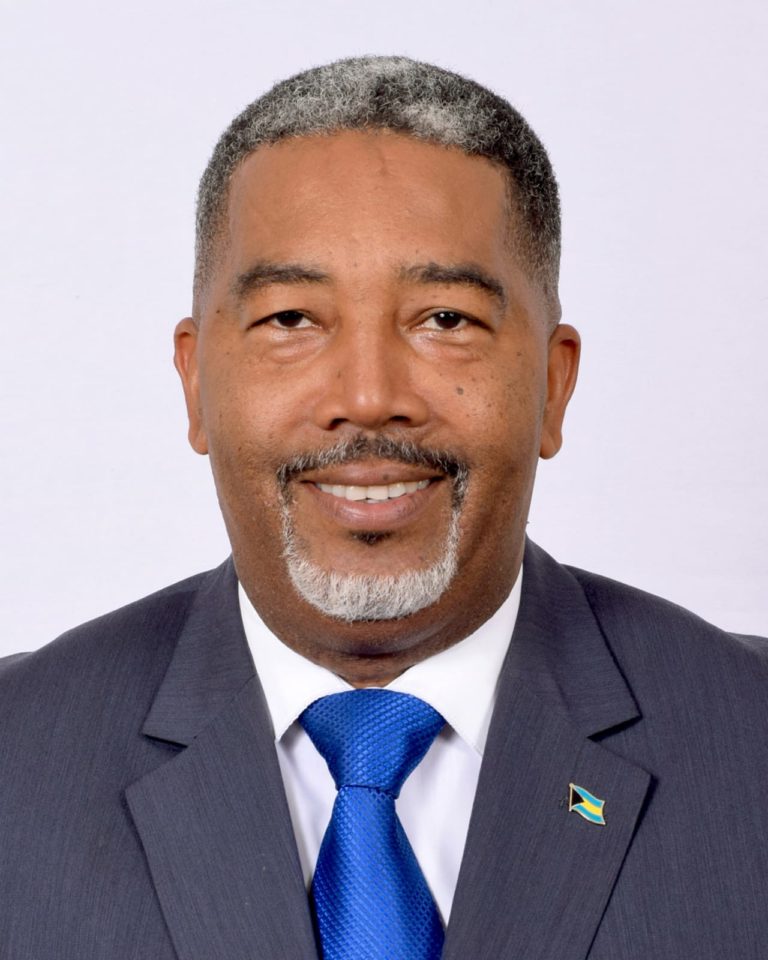When giving interviews, there are few things politicians relish more than talking about things that we should all agree are bad—things like mass genocide, oil spills, and rape, for example. But because we live in a place that, from time-to-time, struggles to make sense of itself that is not the case in The Bahamas.
On Tuesday, Minister of Social Services and Urban Development, Frankie Campbell, caught at the centre of a media scrum, was asked what should’ve been a simple, albeit well-articulated question by a reporter.
“I wanted to ask you about the increase in the number of reported rapes last year. Is there anything being done from a social service, primary prevention standpoint,” the reporter inquired.
From the moment rape was mention, though, we knew this was not going to turn out the way it should.
Campbell, seemingly annoyed by the question and perhaps taking his cue from Prime Minister Minnis’ security detail, fanned reporters’ mics away while shaking his head. The answer that followed verbalized that annoyance.
Campbell responded with “A friend told me that there are 12 months in the year, spend the first six months minding my business and the next six months staying out of other people’s business, and I’ll be fine,” he said.
“Don’t ask me about rapes.”
He continued, “You’re talking about crime. You’re talking about crime prevention. Social services are about poor people who need food, people who need social assistance and stuff like that.”
This should worry all of us.
During an interview with reporters at the 2019 New Year’s Day Junkanoo parade, the Minister said that the issue of marital rape was “a matter that we cannot ignore.”
This is the very same minister that led the Government of The Bahamas’ delegation to the 71st session of the Committee on the Elimination of All Forms of Discrimination Against Women (CEDAW) in Geneva, Switzerland.
At that session, Campbell said that “The government of the Commonwealth of The Bahamas has expanded the Bureau of Women’s Affairs, into the Department of Gender and Family Affairs to promote the rights of women in The Bahamas.”
The Bureau of Women’s Affairs is the very same government agency that facilitated the production of the comprehensive “Strategic Plan to Address Gender-Based Violence” in August of 2015. This strategic plan was authored by the National Task Force for Gender-Based Violence.
While the term “gender-based violence” addresses more than just rape, I imagine that Campbell would consider things like domestic violence simply a “crime” matter as well.
As the plan details, “The document clearly defines gender-based violence and the scope and depth of the problem. It provides the rationale and approach for the development of a national strategy to address gender-based violence, lays out the structure for a GBV Authority and lists the ten programmes to be addressed in the first year of the establishment of the GBV Authority.”
The plan frames gender-based violence through the lens of a public health crisis, noting that “GBV coordination has been a fragmented, non-synchronous initiative without government oversight and a national strategic plan to curb or eradicate this increasing public health concern.”
Among one of the plans, first recommendations are “multi-sectoral coordination.” This recommendation flies directly in the face of Campbell’s assertion that rape is simply about “crime” and “crime prevention”.
But even if rape were only about crime and crime prevention, this does not eliminate the need for a multi-sectoral approach.
The Ministry of Social Services and Urban Development is part of an ongoing Inter-American Development Bank funded, $20 million multi-sectoral crime prevention strategy already—The Citizen Security and Justice Programme (CSJP).
In fact, the CSJP addresses the issue of gender-based violence and specifically rape, by setting aside funding for “training activities provided to youth, adults, and local leaders to address norms that promote acceptance of violence (e.g. parenting, gender norms, rape risk reduction programmes, public awareness, and behaviour change campaigns, as well as counselling and conflict resolution delivered through refurbished centres),” according to the loan proposal document.
Over $4.8 million has been put aside of training like this and others as a part of the violence prevention programme.
According to growing evidence, these cross-cutting approaches to violence prevention, which includes community engagement, cultural and behavioural change, psycho-social support and employment skills building seem to be the policy panacea for long-lasting violence reduction through prevention.
Campbell’s statements aren’t troubling just because he doesn’t seem to understand the details of his portfolio, he also doesn’t seem to have a grip on how good social policy is made—and since becoming Minister of Social Service and Urban Development, this should be the business that he is minding.


